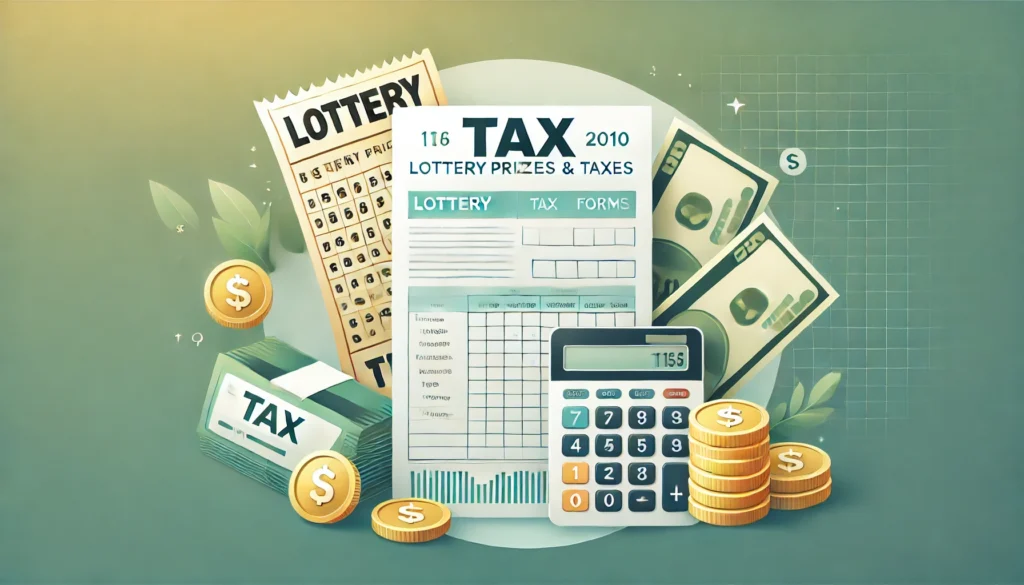You’ve just checked your ticket and—boom!—you’ve won the lottery! 🥳 But as you start dreaming about how to spend your newfound riches, a nagging question pops into your head: “Wait, do I have to pay taxes on this?”
It’s a question many lottery winners (and hopefuls) ask, and the answer isn’t as simple as you might think. Let’s break it all down together and clear up any confusion about whether lottery prizes are really tax-free. Spoiler alert: Uncle Sam has a pretty big appetite for your winnings!
Are Lottery Winnings Tax-Free in the U.S.?
Here’s the short answer: no, lottery winnings are not tax-free in the United States. In fact, they are considered taxable income, and both federal and state governments usually want a piece of the pie.
Whether you’ve won $500 or $500 million, your prize will be subject to taxes. The size of the tax bite depends on how much you’ve won and where you live.
Federal Taxes: The First Cut
The IRS treats lottery winnings as income, which means they’re subject to federal taxes.
- For Prizes Over $5,000: The lottery automatically withholds 24% of your winnings for federal taxes.
- If You’re in a Higher Tax Bracket: Depending on your total income for the year, you could owe up to 37% in federal taxes.
Let’s break it down:
- If you win $1 million, $240,000 will be withheld immediately, but you could owe an additional $130,000 (or more) at tax time.
- For a $10 million jackpot, $2.4 million will be withheld upfront, but you might owe another $1.3 million or more later.
Pro Tip: Don’t spend all your winnings right away—set aside money for taxes to avoid a nasty surprise come April!
State Taxes: The Next Bite
State taxes can vary widely, and they often depend on where you bought your ticket or live.
- Tax-Free States: Some states, like Florida, Texas, and California, don’t tax lottery winnings. Lucky you if you live there!
- High-Tax States: States like New York can take a hefty portion—up to 8.82% in state taxes on top of federal taxes.
- Residency Rules: If you live in one state but buy a ticket in another, you may need to pay taxes in both states.
Always check the tax laws in your state to know exactly what to expect.
What About Smaller Prizes?
If you win less than $600, most lotteries won’t report your prize to the IRS—but you’re still required to report it as income on your tax return.
For prizes between $600 and $5,000, you’ll typically receive a Form W-2G from the lottery to include with your taxes. While no money may be withheld upfront, you’ll owe taxes when you file.
Are There Any Tax-Free Lottery Prizes?
In the U.S., the answer is generally no. However, there are a few exceptions:
- Charitable Raffles: If you win a prize in a nonprofit raffle, some states exempt it from taxes.
- Gifted Lottery Tickets: If someone gifts you a winning ticket, the giver may owe gift tax, not you.
- State-Specific Rules: Check your state’s lottery rules for unique tax exemptions.
International Lottery Winnings
Did you win a lottery while abroad? Be cautious. As a U.S. citizen, you’re required to report worldwide income, including foreign lottery prizes. However, some countries don’t tax lottery winnings, which could ease your burden.
- Canada: Lottery winnings are tax-free!
- United Kingdom: Also tax-free.
- India: Tax rates on lottery prizes are as high as 30%.
If you’re playing an international lottery, consult a tax professional to understand your obligations.
How to Minimize Your Tax Burden
Winning the lottery doesn’t mean you have to lose half your prize to taxes! Here are some tips to help keep more of your winnings:
- Consider a Lump Sum vs. Annuity:
- A lump sum is taxed all at once, which can push you into a higher tax bracket.
- An annuity spreads payments (and taxes) over several years, which may lower your annual tax rate.
- Donate to Charity:
Charitable donations can reduce your taxable income. Plus, it feels great to give back! - Relocate to a Tax-Free State:
If you win a large jackpot, moving to a state with no income tax might be worth considering—just be sure to claim your prize first! - Work with Professionals:
A tax advisor and financial planner can help you navigate taxes and make the most of your winnings.
FAQs About Lottery Taxes
1. Do I have to pay taxes if I give some of my winnings to family?
Yes. You can gift up to $17,000 per person annually (as of 2023) without incurring gift taxes. Larger amounts may trigger taxes for you, the giver.
2. What happens if I don’t report my lottery winnings?
Failing to report winnings can lead to penalties, interest, and even audits. Always report your prize to avoid trouble with the IRS.
3. Are scratch-off winnings taxable, too?
Yes, all lottery winnings—including scratch-offs—are taxable, no matter the amount.
Final Thoughts: Stay Prepared!
Winning the lottery is a dream come true, but it’s important to remember that taxes will take a chunk of your prize. By understanding the rules, planning ahead, and working with professionals, you can enjoy your winnings without unnecessary stress.
So go ahead—play your favorite lottery game, cross your fingers, and dream big. Just don’t forget to keep Uncle Sam in the loop if your numbers come up!


